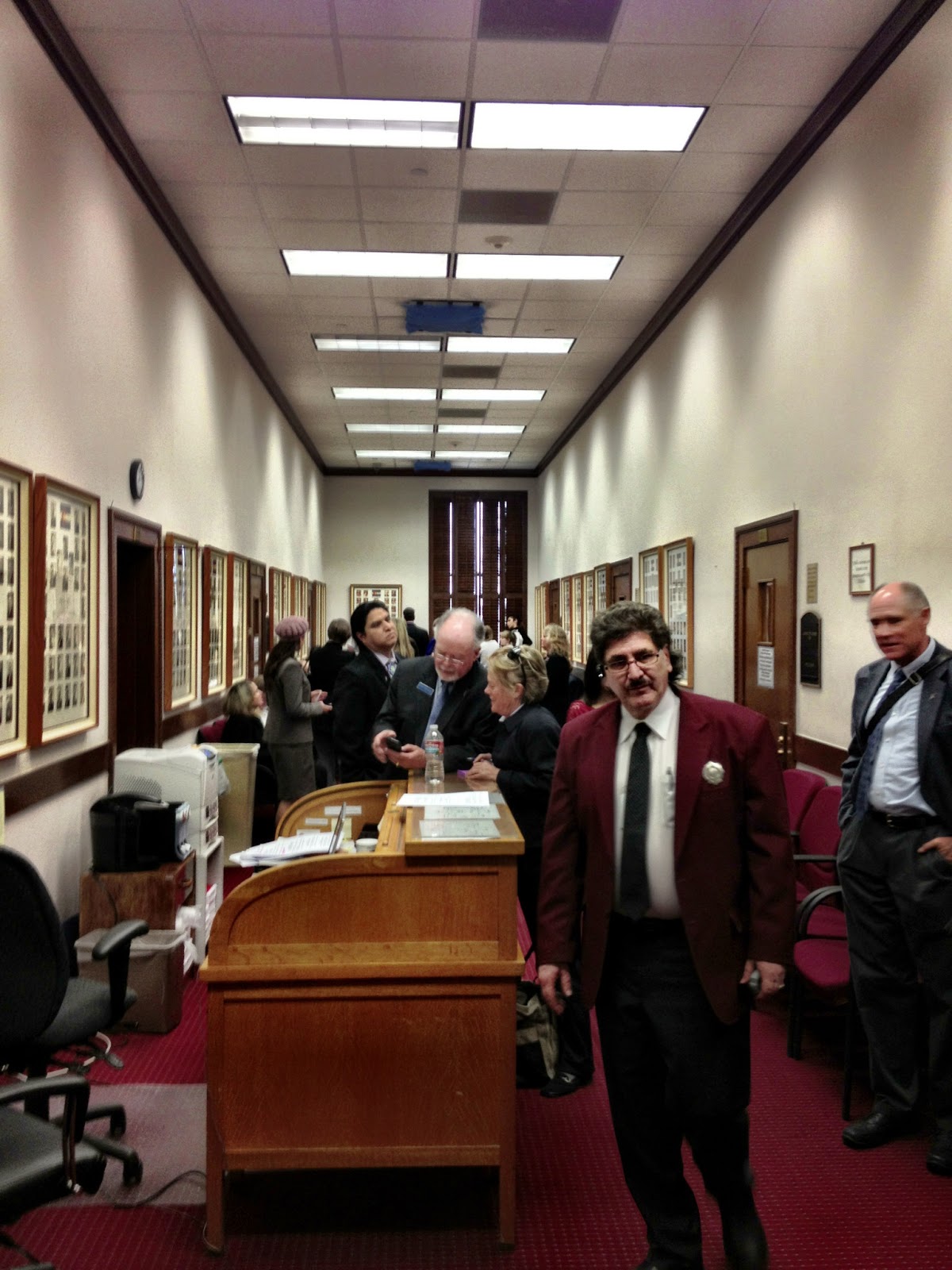More Consumer Protections
Today's post is about SB13-018, Permissible Use of Credit Information By Employers sponsored by Sen. Ulibarri and Rep. Fischer.This session I seem to be drawn toward bills that enhance consumer protections. My series of posts concerning HB13-1046, Social Media Privacy Protections, can be found here. Between the two of them a common thread is their Senate sponsor Jessie Ulibarri. A freshman to the legislature, he's really come out of the gate swingin' bills co-sponsored by more experienced House Democrats Angela Williams and Randy Fischer. Both are expected to be signed into law by the Governor.
Back to SB18. This is a bill designed to prohibit employers using consumer credit checks to screen potential new hires or their existing employees. That sounds a bit odd, right? Have you ever heard of that happening? In truth, and this is proven by employment records*, about 1 in 7 people are turned down from being hired because the employer ran a credit check on them and didn't like what they found. According the primary source of the argument in favor of the bill, a Demos study on the topic, 1 in 4 people report that their credit scores have been checked as a condition for employment.
The thrust for why SB18 exists can be found in the executive summary of the Demos study that the sponsors refer to during testimony.
- Credit scores to not reflect a person's integrity or work ethic as an employee.
- Credit scores are commonly ruined by uncontrolled forces: the recent economic crash, bouts of unemployment, unexpected medical costs and associated crushing medical debt, divorce, identity theft, military separation, student debt, and even residential relocation.
- Race. Blacks and Latinos have on average worse credit scores than Whites.
- For all of the above, using credit scores to evaluate workers becomes a discriminatory practice and effectively perpetuates an individual's bad credit score ie. Being unemployed leads to bad credit which prevents one from being hired, which continues unemployment and a bad credit score.
In Committee
SB18 was heard in the House Business, Labor, Economic and Workforce Development committee March 7th (full audio recording is here). It had previously survived the Senate side of things where it had been introduced and substantially amended to exclude certain employers from the credit check prohibition. They included employers that dealt with Defense, National Security, Intelligence, or Space Agencies of the federal government.Also from the Senate, and this is the big one, an employer may require an employee credit check if they are a bank or financial institution, if they are required to by law, or if the credit check is "substantially related to the employee's current or potential job and the employer has a bona fide purpose for the information".
All that aside things went smoothly enough for Rep. Fischer in the House committee. Republican Reps. Brian DelGrosso and Libby Szabo were critical of the bill. They repeatedly (and redundantly) asked Fischer to explain why the hiring tool of credit checks should be taken away from employers, to which he referenced the Demos report findings of basically "credit scores have not been found to accurately predict an individual's work integrity".
Democrat Rep. Millie Hamner expressed personal offense at the notion of credit checks being used to prevent individuals from finding work in today's tough economic times. Naturally enough, and perhaps too frequently nowadays, the battle lines seemed to be drawn along party lines, D vs. R. As the discussion played out Fischer was able to assuage many of the concerns from DelGrosso and at least acknowledge Szabo's (although her's were noticeably more aggressive).
The major amendment that came from committee was one excluding state or local law enforcement agencies from the ban on using credit score checks. SB18 successfully passed on to House second readings (CoW) where it's been put on hold for the time being.
Field Trip
March 7th was a day I made it down to the capitol! Which is always better because you get to experience it in person. In committee you can feel the tension or jubilation in the room, see members sweat over a crucial vote, watch body language of sparring opponents/proponents. It's exciting stuff! So here are a few pictures.Above is a photo I took from the Senate committee lobby. In the immediate foreground is a Sergeant At Arms. They are the stewards of the capitol. If you're wearing a hat in committee they will ask you to remove it. If you're somewhere you shouldn't be they'll excuse you. And allegedly, if you're walking down the center isle of the Senate or House chambers they will tackle you to the ground. (Center isle is for elected folks only).
Take a moment to notice how packed the place is. Among them: senators, lobbyists, stakeholders, students, and many others planning to testify or observe committees. The committee rooms are behind the doors lining the hall on the left and right.
This is the House Business committee SB18 was heard in. The room itself (LSB-A) is actually situated in the old capitol museum across the street from the capitol building. If it weren't for my phone's camera settings you'd be able to see the gorgeous capitol outside those windows. The committee chair sits in center of the half ringed desk, flanked by fellow committee members. Sponsors of the bill being heard, and those giving testimony, sit at the desk facing the committee members. Audience members sit in the back. In the photo the committee is about to commence. Rep. Fischer, sponsor of SB18, is off to the side talking with folks and preparing notes.
From left to right we have Representatives: (R) DelGrosso, (R) Holbert, (D) Rosenthal, (D) Exum, committee staff person, empty chair of Chair (D) Williams, vice chair (D) Kraft-Tharp, (D) Ryden, (D) Hamner, (R) Navarro, walking to her seat (R) Szabo, (R) Nordberg.
*Several years ago a law was passed that required employers to send formal notices to potential hires (and the Department of Labor) that they were passed up because of their credit score numbers.












